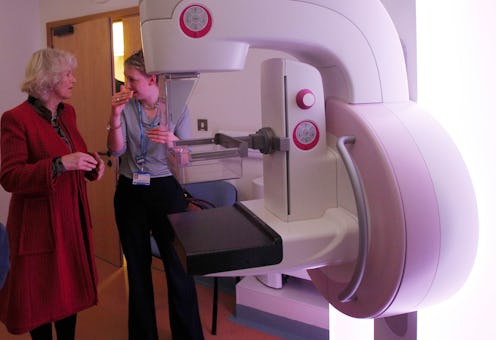News
As If Breast Cancer Wasn't Bad Enough Already
This isn't too surprising, but it sure is depressing: recent research shows that a third of female breast cancer patients struggle with unemployment during and after their treatment. Researchers at the University of Michigan Health System analyzed data on over 1,000 breast cancer patients under age 65 who completed initial and follow-up questionnaires in the past 5 years.
Unemployment problems vary by treatment, though:
The researchers calculated that women who underwent chemotherapy at the time of breast cancer diagnosis were 1.4 times more likely to be unemployed following treatment. The team found that of the women who were not in paid employment after receiving chemotherapy, 50% said that they felt it was important for them to work and 31% said they were actively seeking work.
Chemotherapy recipients are hit especially hard not only with physical side effects of their treatment, but also a cluster of immediate and sometimes lingering psychological side effects, known as "chemo brain."
It's good that this research will help to correct doctors' inaccurate assumption that breast cancer patients, especially chemotherapy recipients, can quickly return to their normal lives once treatment is over. But it's not as if you get much choice in the matter — if chemotherapy is really what you need from a medically-informed perspective, then chemotherapy should be what you get. So, doctors will be stressed by the realization that, when they prescribe chemotherapy, they may also be in effect prescribing long-term unemployment and financial hardship. It's better than being sick, but not as good as being employed!
This bad news builds on previous evidence that cancer patients face increased risk for subsequent unemployment, and comes during a time when women are already growing in their representation amongst long-term unemployed persons in the United States. Unfortunately, there's not much to do about the situation other than to prevent cancer through healthy living, weigh your treatment options carefully if you do get cancer, and hope your doctor will advocate for disability support in the case that you need it.
